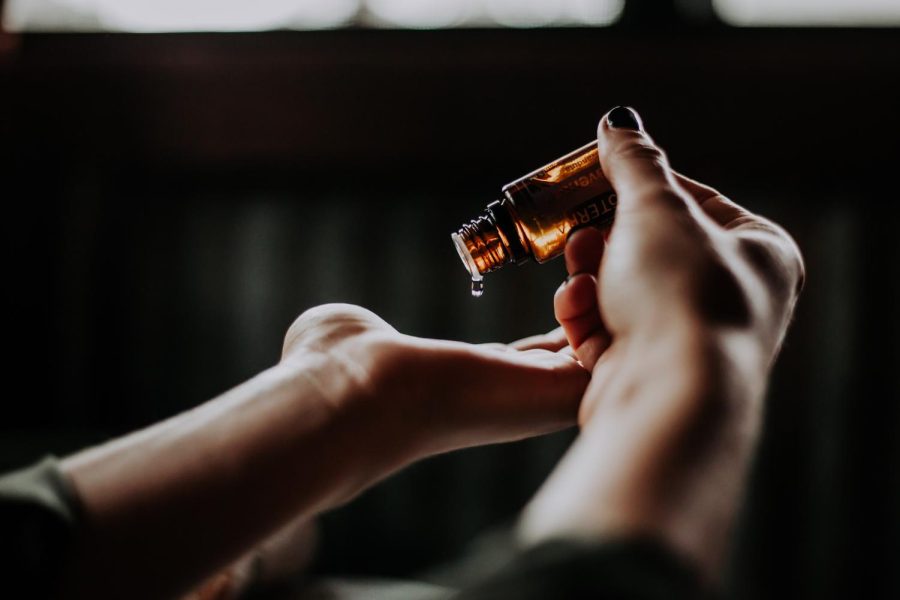Red Rocks Sponsored by Multi-Level Marketing Company With Controversial Past
April 9, 2022
While watching a Red Rocks gymnastics meet between the University of Utah and the University of Oklahoma on Jan. 14, 2022, Reddit users noticed a doTERRA logo displayed prominently on the balance beam. Questions arose, as doTERRA has a controversial past as a company.
DoTERRA is an essential oils company headquartered in Pleasant Grove, Utah. They offer essential oils, but also skin and hair products and wellness programs.
According to doTERRA’s website, they are a multi-level marketing business. Their multi-level marketing program offers the ability to “create added income while working from home. This means you can spend time with family and friends, be your own boss, and build your own dreams.”
DoTERRA explains this business structure as an opportunity for customers to build their own business and become a doTERRA Wellness Advocate.
On top of their Wellness Advocate program, the company offers corporate sponsorships to organizations they believe align with their goals.
According to Matt Smith, the general manager of Utes Sports Properties, sponsorships are a way to “provide numerous opportunities for companies to connect their brands and services to all fan bases, gymnastics included.”
Smith also mentioned the Red Rocks’ other current sponsors, their biggest including America First Credit Union, doTERRA, Pepsi, University of Utah Health and Under Armour.
“We’ll decide with the university what the best level of compensation is. The university usually comes with a plan or with an outline of what they want and how much money they want for that particular investment or that sponsorship,” said Kevin Wilson, corporate relations manager at doTERRA.
In 2022, doTERRA was able to sponsor the January Red Rocks meet and therefore add their branding and logos to equipment.
According to the NCAA, the Red Rocks have one of the largest fan bases. Over 15,000 people attend in-person meets at the Jon M. Huntsman Center. This crowd, plus those streaming from home, allow for many people to see who is sponsoring the team.
When asked about compensation methods, Sydney Dameron, another corporate relations manager at doTERRA, said, “We’re paying the university — sometimes it’s in cash, sometimes it’s in trade. We provide a significant amount of product to the athletes just to help them perform at their highest level.”
Dameron also mentioned their product “Deep Blue.” The product creates a cooling sensation on the skin similar to Icy Hot and helps athletes like the Red Rocks gymnasts.
When asked to specify the amount that doTERRA has paid the U for a sponsorship, Dameron said, “For a university this size, you’re looking at anywhere between $50,000 a year to a million and a half. So it has a wide range depending on what your assets are.”
The U’s athletics department declined to comment on specifics about sponsorship compensation.
DoTERRA has experienced controversy in the past over claims their wellness advocates have made.
In 2014, the U.S. Food and Drug Administration sent a warning letter to multiple companies, one of which was doTERRA, admonishing them for claims that their wellness advocates had made. DoTERRA responded with the creation of a “quick claims guide” for their Wellness Advocates to follow that includes careful wording when it come to terms regarding diseases and illness.
For example, the quick guide tells Wellness Advocates to say, “supports cartilage and joint function,” instead of “soothes arthritis pain.”
DoTERRA is not alone in the advertising controversy. Their competitor company, Young Living Essential Oils, also based in Utah, has faced many of the same issues when it comes to how they sell and market their products.
In an article by Eric Peterson of the Utah Investigative Journalism Project regarding the essential oil company’s false advertising, it was noted that “critics have long pointed out that getting multi-level marketing companies to follow the rules is a challenge when they use armies of contractors or ‘members’ who sell products in one-on-one settings where they can often literally say whatever they want about the products.”








